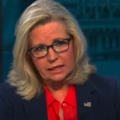In recent political discourse, a new ridiculous proposal has emerged from the Democratic camp, specifically from Rep. Barbara Lee (D-CA), who has suggested a $50 per hour minimum wage. This idea was discussed during a U.S. Senate debate and echoed across various news outlets. From a naive perspective, the notion of a $50 minimum wage might seem like a generous endeavor to uplift the working class. However, the pitfalls from this type of reckless political gamesmanship are numerous.
Economic Implications
The proposal for a $ 50-an-hour minimum wage raises significant economic concerns. Firstly, the feasibility of implementing such a drastic increase from the current federal minimum wage of $7.25 per hour to $50 per hour is frankly outrageous and meant only to garner votes. The impact on small businesses, which are the backbone of the American economy, would be devastating. Many small businesses operate on thin margins and could not withstand the increased labor costs, potentially leading to layoffs, reduced hours for workers, or even closures.
Moreover, the ripple effects on the economy would extend beyond the immediate impact on businesses. Inflation, already a concern for many Americans, would be exacerbated by such a steep increase in wages. The cost of goods and services would likely rise as businesses attempt to offset their increased labor costs, diminishing the purchasing power of the very wage increase intended to help workers. How does a $50 dollar Big Mac sound?
The Political Landscape and Conservative Values
The proposal also clashes with fundamental values such as fiscal responsibility, free-market principles, and individual liberty. Conservatives would argue that the market should dictate wage levels based on supply and demand, not arbitrary figures set by government mandates. A $50 minimum wage could also disincentivize work and innovation, as the gap narrows between entry-level wages and those earned by skilled professionals, potentially undermining the work ethic that is central to conservative values.
Furthermore, the proposal is more of a political maneuver than a viable economic policy. It appeals to populist sentiments without addressing the underlying issues that contribute to wage disparities and the cost of living, such as regulatory burdens on businesses, tax policies, and the need for educational and vocational training that aligns with the demands of the modern economy. Starter jobs such as a worker at McDonalds is not meant to be a career for most. it’s just that, a starter job to gain experience before moving on as you gain experience.
A Practical Alternative
Rather than a one-size-fits-all approach to wage increases, politicians should advocate for policies that foster economic growth, job creation, and upward mobility. This includes reducing regulatory burdens on businesses, reforming the tax code to incentivize investment and entrepreneurship, and promoting education and training programs that equip workers with the skills needed in a competitive global market.
Investing in workforce development and creating a business-friendly environment can lead to sustainable wage growth driven by market forces rather than government mandates. By encouraging innovation and competition, we can create a more dynamic and resilient economy that offers opportunities for all Americans to succeed.
Final Thoughts
The $50 an hour minimum wage proposal, while capturing headlines and stirring debate, underscores a fundamental divide in the approach to economic policy between conservatives and progressives. While the intention to improve the lives of working Americans is shared across the political spectrum, the means to achieve this goal differ significantly.
Conservatives believe in empowering individuals and businesses through a free-market economy that encourages hard work, innovation, and entrepreneurship. The path to prosperity and a higher standard of living for all Americans lies not in government-imposed wage mandates but in policies that create a fertile ground for economic growth and opportunity.
As we navigate these complex economic and political waters, it is essential to critically assess the implications of such proposals and advocate for solutions that align with our values of freedom, responsibility, and the pursuit of the American dream.
Having trouble? If your comment doesn’t post, submit another comment right after it that says: Jimmy, please approve my comment that didn’t post.














Ya don’t have to try and make this schitt up! What did ya expect from Kalifornicate!